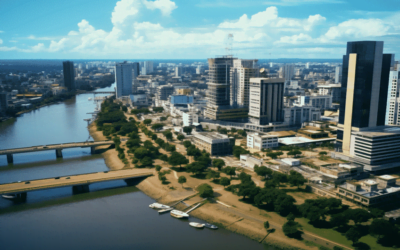Hey there, fellow drone enthusiasts and curious readers! I understand that if you’ve landed here, you’re probably seeking answers about Bulgaria’s Drone Laws, right? Well, you’re in the right place.
I’ve been there too, searching for all the ins and outs of drone regulations in Bulgaria, and I get it—it can be a bit perplexing. But don’t worry; I’m here to simplify things for you.
You might wonder, “How do I know all this?” Trust me, I’ve delved deep into the drone laws of Bulgaria. Hours of research, going through official documents, and decoding the fine print.
Why? Because I wanted to be sure I had the most accurate and up-to-date information to share with you. Drone laws are no joke, and they vary from place to place, but I’ve got the scoop on Bulgaria’s specific regulations.
So, if you’re looking for the ultimate guide to Bulgaria’s Drone Laws and want to avoid the headache of sorting through scattered information, you’re in the right place.
Dive into the following pages, and I promise you’ll find all the solutions to your search intent. I’ve got the details, the breakdown, and the explanations that will make navigating Bulgaria’s drone laws a breeze. Let’s get started!
- Overview of the Regulatory Bodies
- EU Drone License and Operational Categories
- Categorization of Drone Operations
- Rules for Different Types of Drone Operators
- Considerations and Conditions for Drone Operations
- Current Drone Laws and Regulations in Bulgaria
- Procedures for Compliance and Authorization
- Final Thoughts on Bulgaria Drone Laws
- Frequently Asked Questions on Bulgaria Drone Laws
Overview of the Regulatory Bodies

Okay, let’s meet the key players who are shaping the drone rules in Bulgaria
Bulgarian Air Traffic Services Authority (BULATSA)
So, imagine BULATSA as the air traffic controller for all things flying in Bulgaria. They’re responsible for managing the country’s airspace.
When it comes to drones, they keep an eye on safety, ensuring that drones don’t disrupt the harmony of the skies. They play a vital role in making sure that your drone adventures are safe, and that others’ airspace rights are respected.
Directorate General Civil Aviation Administration (DG CAA)
Now, think of DG CAA as the fine print experts. They are the ones who make sure that drone operations in Bulgaria comply with the legal nitty-gritty.
So, if you’re wondering what forms to fill, permissions to seek, or any legal requirements, DG CAA is the go-to place. They are like the guardians of the rulebook, ensuring every drone operation is in line with the law.
European Union Aviation Safety Agency (EASA)
EASA is like the big brother of drone regulations. While Bulgaria follows EU rules, EASA has a say in setting the broader standards. Their role is to harmonize drone regulations across EU countries, ensuring a unified approach to drone safety. So, in a way, they make sure that flying a drone in Bulgaria is similar to flying one in France or Spain, giving drone enthusiasts a consistent experience across Europe.
Roles and Responsibilities
Now, let’s talk about what these folks actually do. BULATSA, as I mentioned, is all about airspace management and safety. They keep the skies safe for everyone, from commercial airlines to your little drone.
DG CAA, on the other hand, handles the day-to-day rules and regulations. If you’re planning a drone flight, you might need to get their blessing, especially for specific scenarios.
They help ensure that drone operations don’t infringe on privacy, security, or any other legal concerns.
And EASA, well, they’re more about creating the big picture. They work to standardize drone regulations across the European Union, making sure that whether you’re in Bulgaria or Belgium, the rules are pretty much the same.
This consistency is a win for drone enthusiasts, making it easier to understand and follow the rules across different EU countries.
So, these regulatory bodies are like the behind-the-scenes crew making sure that you, the drone enthusiast, can enjoy your flights safely and responsibly. They may not be in the spotlight, but their work is essential for a thriving drone community in Bulgaria.
Also Read: Drone Laws in Brunei 2024
EU Drone License and Operational Categories

Let’s explore the fascinating world of the EU Drone License and the different operational categories that set the stage for safe drone flights.
EU Drone License
The EU Drone License is like your golden ticket to drone freedom in Europe. It’s made up of two parts – the Basic Certificate (A1-A3) and the Supplementary Certificate (A2). The Basic Certificate is like your learner’s permit.
It allows you to fly drones with certain limitations, such as height and proximity to people. It’s a great starting point for beginners.
The Supplementary Certificate, on the other hand, offers more flexibility. If you’re a bit more experienced and want to do more with your drone, this is the one you’ll aim for. It’s like getting your full driver’s license after earning your learner’s permit.
Operational Categories
Now, let’s talk about the categories that define how you can fly your drone. It’s like having different lanes on a highway for different types of vehicles. In the drone world, we have three lanes:
Open Category
This is the category where most of us start our drone journey. It’s like the beginner slope at a ski resort. You can fly your drone in this category if it’s under a certain weight and you keep it within your line of sight. It’s all about safety and simplicity.
Specific Category
Think of this as the intermediate level. If you have specific scenarios in mind, like flying closer to people or beyond your line of sight, this is where you need to get authorization. It’s like having a special pass for a restricted area in an amusement park. You show them you know the rules, and you’re good to go.
Certified Category
This is where things get serious. If you’re flying a drone that can carry people, like those used for aerial tours, you need certification. It’s like becoming a professional pilot for drones. The stakes are higher, and the rules are stricter, but it’s essential for ensuring safety when drones carry human passengers.
Also Read: Drone Laws in Brazil 2024
Categorization of Drone Operations

Alright, let’s roll up our sleeves and get into the nitty-gritty of drone categorization. It’s like knowing which type of vehicle is allowed on which road – important for a smooth ride.
Open Category
When we talk about the Open Category, it’s all about those straightforward drone flights. Now, within this category, there are some sub-categories to consider: A1, A2, and A3. Think of these like different lanes for different types of drivers.
Subdivision into Sub-Categories: A1, A2, and A3
In the drone world, we’ve got these sub-categories to make sure we’re on the right track. A1 is like the slow lane, meant for drones that can fly over people but not over crowds. A2 is the middle lane, where you can fly close to people but with some extra rules.
And A3, well, it’s the fast lane, where you can fly far away from people. Each sub-category has its own set of rules, making sure everyone stays safe in the sky.
Requirements and Rules for Each Sub-Category
Now, let’s break down what it takes to drive in these lanes. A1 requires a basic certificate, and your drone must be under a specific weight. A2 needs a bit more – you’ll need to get that supplementary certificate.
And A3, well, it’s for the big leagues, and you might need additional approvals. But whatever lane you choose, the common rule is to always keep your drone within your line of sight and under 120 meters above ground. It’s all about safety first.
Specific Category
If the Open Category isn’t quite what you need, there’s the Specific Category. Think of it like taking a detour – you’ve got a special plan for your drone, and you need permission to make it happen.
Authorization Process and Requirements for Flights in This Category
Now, when it comes to the Specific Category, it’s all about getting the green light. You’ll need to follow a specific authorization process and meet certain requirements for your flights. It’s a bit like applying for a permit for a block party.
You explain what you’re planning, and how you’ll do it safely, and you wait for the nod of approval. This way, your drone flights stay responsible and in compliance with the rules.
Certified Category
Now, let’s enter the territory of the Certified Category. This is where things get quite serious, especially when we’re dealing with drones designed to carry people. It’s like going from driving a small car to piloting an aircraft – more responsibility, more rules, and more to consider.
Requirements for Certification and Licensed Remote Pilots
Getting into the Certified Category is not for the faint-hearted. It’s like getting your pilot’s license for the sky. Both your drone and you as the pilot need to meet specific requirements. Your drone must be certified to ensure it’s safe to carry passengers.
As the pilot, you need a special license that shows you’re trained and qualified to operate in this advanced category. This level of certification ensures that every flight in this category is as safe as can be.
Special Considerations for Drones Designed to Carry People
Now, let’s talk about the heavy lifters – drones designed to carry people. These are like the buses or planes of the drone world. You see, they come with additional responsibilities and special considerations. Safety is the top priority.
Drones in this category must undergo rigorous testing and adhere to strict safety standards. The goal is to ensure that when someone steps onto a drone for a scenic tour or a quick commute, they can do so with confidence, knowing that all necessary precautions have been taken.
The Certified Category exists to make sure that carrying passengers by drone is just as safe as any other mode of transportation.
Also Read: Drone Laws in Botswana 2024
Rules for Different Types of Drone Operators

Now, let’s talk about the rules and responsibilities that come with being a drone operator in Bulgaria. Whether you’re a hobbyist enjoying your drone for fun or a commercial operator using it for business, there are specific guidelines to follow.
Hobbyist Drone Operators
If you’re flying drones as a hobby, you’re still an important part of the drone community. Here’s what you need to know:
License, Registration, and Insurance Requirements
As a hobbyist, you don’t need a special license to fly your drone. However, you must register yourself as a drone pilot, and your drone needs an operator number.
This is like having a license plate on your car. It helps authorities identify you in case of any incidents. While insurance isn’t required for hobbyists, it’s a smart move. It’s like having a seatbelt on while driving – it’s not mandatory, but it’s a safety net you’ll be thankful for if anything goes wrong.
Specific Rules for Hobbyist Drone Flights in Bulgaria
When you’re flying for fun, you must follow a set of rules to keep things safe. For instance, your drone should remain under 120 meters in altitude, and you should always keep it in your line of sight.
It’s a bit like driving on a quiet country road. These rules ensure that your drone flights are enjoyable while also respecting the safety and privacy of others.
Commercial Drone Operators
If you’re using drones for commercial purposes, like photography, surveillance, or deliveries, you’re stepping into the professional realm of drone operation. Here’s what you need to know:
License, Registration, and Insurance Requirements
For commercial drone operators, things are a bit more formal. You need a commercial drone pilot license, which shows you’re trained and qualified for these operations.
Your drone should be registered, just like a commercial vehicle, and you’ll require drone insurance. It’s a bit like a courier service—you need the right permits, registered vehicles, and insurance to ensure smooth operations.
Specific Rules for Commercial Drone Flights in Bulgaria
Your commercial drone flights come with more responsibility. You may need specific permissions from the Directorate General Civil Aviation Administration (DG CAA) for your flights.
It’s like having to apply for permits for every delivery route. These rules are in place to ensure safety, privacy, and responsible drone use for professional purposes.
Visitor/Tourist Drone Operators
Now, let’s dive into what it means to be a visitor or tourist operating a drone in Bulgaria. It’s a bit like exploring a new city—you want to make the most of your experience while respecting local rules.
License, Registration, and Insurance Requirements for Foreign Visitors
If you’re a drone enthusiast visiting Bulgaria and want to capture its beauty from the sky, there are some rules to keep in mind. You don’t need a specific license as a foreign visitor, but you should ensure your drone is registered, just like a rental car.
Insurance isn’t mandatory, but it’s wise to have, especially in a new place. It’s like carrying travel insurance for those unexpected mishaps—you hope you won’t need it, but it’s comforting to have.
Specific Rules for Tourist Drone Flights in Bulgaria
When you’re a tourist with a drone, it’s important to be considerate of the local regulations. The same altitude and line-of-sight rules apply – your drone should stay under 120 meters and within your view.
It’s like being a respectful tourist who doesn’t disrupt the peace and tranquility of a new place. Following these guidelines ensures that your drone flights enhance your experience in Bulgaria without causing any trouble.
Government Drone Operators
Government drone operators play a unique role in ensuring public safety and conducting various operations.
License, Registration, and Insurance Requirements for Government Operations
Government drone operators need to meet certain requirements to operate drones. They must have the necessary licenses and registrations.
Insurance may not be mandatory for government operations, but it’s often in place to cover potential risks. It’s like equipping law enforcement officers with the right tools and resources to carry out their duties effectively and responsibly.
Specific Rules for Government Drone Flights in Bulgaria
Government drone operators follow specific rules to maintain order and safety in the country. They must adhere to these rules to ensure the well-being of the public and to respect privacy. These rules are similar to the guidelines followed by police or emergency services.
They’re in place to ensure that government drones are used responsibly and within the boundaries of the law.
Also Read: Drone Laws in Bosnia and Herzegovina 2024
Considerations and Conditions for Drone Operations

When it comes to operating drones in Bulgaria, there are key considerations and conditions you should keep in mind. Think of them as the traffic rules in the sky that help everyone stay safe and have a great experience.
Visual Line of Sight, Altitude Limits, and Other Operational Restrictions
First off, there’s the golden rule of keeping your drone in your visual line of sight. It’s like driving your car – you wouldn’t close your eyes while behind the wheel, right? Altitude limits are also crucial.
Your drone should stay below 120 meters above the ground, ensuring it doesn’t interfere with other air traffic.
Additionally, there are restrictions in place to keep drones away from people, especially in crowded areas. It’s all about common-sense safety measures to prevent accidents and protect privacy.
Insurance Coverage Requirements for Drone Operators
Insurance is a bit like your safety net in the drone world. While it’s not mandatory for hobbyists, having insurance is strongly recommended. For commercial operators, it’s a must. Think of it as the umbrella you bring on a rainy day.
Insurance coverage ensures that in case of any mishap or damage caused by your drone, you’re financially covered. It’s a small cost for peace of mind and responsible drone operation.
Competency and Pilot Certification Necessities
If you’re flying drones in Bulgaria, it’s essential to have the right knowledge and skills. Whether you’re a hobbyist or a commercial operator, ensuring you’re competent is vital.
For hobbyists, there’s no specific license required, but it’s advisable to educate yourself on the rules and guidelines.
Commercial drone operators need to earn a commercial drone pilot license, similar to how professional drivers have specialized licenses.
It’s like being a certified scuba diver – you need to learn and pass tests to ensure you can operate responsibly and safely.
These certifications are a testament to your competence and ability to fly drones in a responsible manner.
Also Read: Drone Laws in Bolivia 2024
Current Drone Laws and Regulations in Bulgaria

Let’s get up to speed with the drone laws and regulations that are currently in place in Bulgaria. Understanding the legal landscape is like knowing the local rules of the road when you’re in a new town.
Existing Drone Laws and Regulations in Bulgaria as of the Last Knowledge Update
As of the last update, Bulgaria had adopted the drone regulations set by the European Union Aviation Safety Agency (EASA).
This means that the rules and requirements for flying drones in Bulgaria align with those of the European Union.
It’s like following a global standard for safety. So, if you’re already familiar with EU drone regulations, you’re on the right track.
Important Points from the Database
In the world of drones, there are specific details that you need to know. First, there’s the weight limit – most drones over 250 grams require an EU Drone License, consisting of the Basic Certificate (A1-A3) and the Supplementary Certificate (A2).
Then, there are altitude restrictions; your drone shouldn’t go above 120 meters. Think of it like a ceiling for your drone’s adventures.
You’ll also need to ensure your drone remains within your line of sight and that you’re registered as a drone pilot. It’s all about accountability and safety in the drone community.
So, before you send your drone soaring in the Bulgarian skies, be sure to have these important points on your checklist.
Also Read: Drone Laws in Bhutan 2024
Procedures for Compliance and Authorization

Understanding the procedures for compliance and authorization is essential for every drone operator in Bulgaria. It’s like knowing the steps to get your driver’s license – there are processes to follow for a smooth and legal journey into the drone world.
Authorization Process for Drone Operations in Bulgaria
The authorization process for drone operations in Bulgaria involves some necessary steps. First, applicants must request permission by submitting a letter to the Directorate General “Civil Aviation Administration” (DG CAA) at least eight days in advance of drone operations.
It’s like notifying the authorities before hosting an event. This letter should describe the activity, location, date, time, responsible person, and contact information.
Once the DG CAA approves the application, they produce a NOTAM message, similar to an event permit, which is sent to the applicant along with other relevant flight information. It’s all about transparency and ensuring safety in the skies.
Guidance on How Operators Can Comply with the Necessary Requirements
For compliance, EU residents should register in the EU member state of their primary residence and contact the Aviation Authority there for further details. Non-EU residents, if they plan to operate their drones in Bulgaria, should register as operators in Bulgaria.
Just like how tourists follow local rules when visiting a new place, complying with these regulations ensures responsible drone operation. Remember, the drone should always be in your visual line of sight, remain below 120 meters, and avoid carrying dangerous goods or dropping materials.
It’s all about ensuring that drone operations are safe, responsible, and in accordance with the law.
Also Read: Drone Laws in Benin 2024
Final Thoughts on Bulgaria Drone Laws

As we wrap up our journey through the realm of Bulgaria’s drone laws, let’s take a moment to recap what we’ve learned. Much like any journey, knowing the rules and regulations is crucial to a safe and enjoyable experience.
In Bulgaria, drone operators need to be aware of the EU Drone License, which consists of the Basic Certificate (A1-A3) and the Supplementary Certificate (A2). It’s mandatory for drones weighing over 250 grams.
Drones should not fly above 120 meters, and they must always be within your visual line of sight. Registering as a drone pilot and attaching an operator number to your drone are vital steps to ensure compliance.
Adhering to these rules isn’t just about following the law; it’s about promoting safe and responsible drone operations. It’s like driving with your seatbelt on – a small action that can make a significant difference in your safety.
Respecting the privacy and safety of others and avoiding flying over people without a class identification label or drones lighter than 250 grams is essential.
Being a considerate drone operator is not only the right thing to do, but it also helps maintain a positive image of the drone community.
The drone world is an ever-evolving one, much like technology itself. Regulations may change, and it’s your responsibility to stay informed.
Think of it as keeping your software up-to-date for the best performance. Seek guidance from relevant authorities, like the Directorate General “Civil Aviation Administration” (DG CAA) in Bulgaria, if you have questions or need assistance.
This way, you’ll always be in the know and able to operate your drone safely and responsibly. So, as you venture into the skies with your drone, remember to fly high but stay grounded in knowledge and responsibility. Happy flying!
Frequently Asked Questions on Bulgaria Drone Laws
1. Can I fly my drone in Bulgaria without a license?
No, most drones in Bulgaria require an EU Drone License, which includes the Basic Certificate (A1-A3) and the Supplementary Certificate (A2). This is mandatory for drones weighing over 250 grams. So, to enjoy safe and legal drone flights in Bulgaria, it’s essential to obtain the necessary licenses.
2. What are the operational categories for drone regulations in Bulgaria?
Bulgaria, being a part of the European Union, follows the drone regulations set by the European Union Aviation Safety Agency (EASA). The operational categories are divided into Open, Specific, and Certified. The Open category is the most common, but there are specific rules and requirements for each category based on the level of risk involved.
3. Do I need to register as a drone pilot in Bulgaria?
Yes, it’s a requirement in Bulgaria to register yourself as a drone pilot. This process ensures accountability and helps authorities keep track of drone operators. It’s like having a driver’s license for your drone adventures.
4. Can I fly my drone over people in Bulgaria?
In Bulgaria, the rules vary based on the drone’s class identification label and weight. For most drones, flying over people is restricted unless they have a class identification label or are lighter than 250 grams. This rule is in place to ensure safety and protect people on the ground.
5. What are the insurance requirements for drone operators in Bulgaria?
For drone operations in Bulgaria, it’s not mandatory for hobbyist drone operators to have insurance, but it’s highly recommended. However, commercial drone operators are required to have drone insurance. It’s a safeguard to cover any unforeseen circumstances and ensures responsible drone operations.













